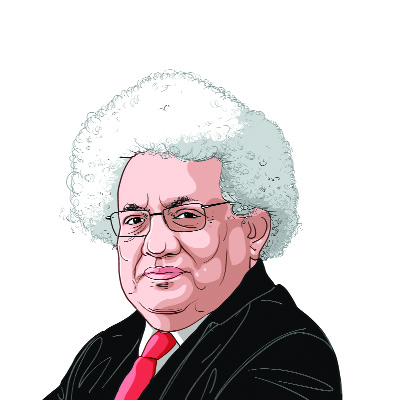Opinion Meltdown time
It was always a strategic defence alliance
Forget about the WikiLeaks scandal or the inquiry into it. The occasion which it centres around was the crucial vote on the Indo-US nuclear deal. It was always a strategic defence alliance. It was sold as an answer for Indias energy needs since it made the expansion of civilian nuclear reactors feasible for supplying energy to Indian industry and consumers. It was always a bit of pretence. I much prefer the nuclear defence alliance to the civilian use of nuclear power. After all,no one has as yet used a nuclear weapon in war since Hiroshima and Nagasaki for sixty five years. Civilian nuclear reactors have had accidents in the UK,US,Ukraine.
And now Japan. The global warming scenario gave a boost to the hopes of nuclear industry champions. Despite Three Mile Island and Chernobyl,here was a perfectly virtuous reason for advocating nuclear power. It was profitable and ecologically sound. There was a sudden renaissance in the nuclear industry and US,China and India were keen to get on the bandwagon. There was a view expressed that nuclear power was safe. The old technology may have been dangerous,but there was now a new and improved technology which was much safer. France and Japan were two nations which had used nuclear reactors for generating electricity and had benefited. The marriage of global warming fears and nuclear energy profits was a marriage made in heaven.
It has been obvious for a long time,as I have argued in this column before,that the power generated by nuclear energy is expensive. The UK tried to privatise its reactors and no private company would buy them because the UK government was unwilling to go on giving the billion pound subsidy,which nuclear energy was getting while publicly owned. It was obvious that the carbon price would have to be very high indeed,before the nuclear option became viable. But even apart from the running costs of supplying electricity from nuclear sources,was the unwritten and inestimable costs of disposing of nuclear waste which has a half life of thousands of years. This was a big sticking point in the US where many of the burial sites for nuclear waste abetted on land belonging to native American tribes. There was a political impasse for many years. The nuclear renaissance which is now going on,has so far ignored the issue but it will soon begin to bite.
All this was before Fukushima. Here were six reactors in close proximity and they were built to withstand earthquakes,but not a tsunami as well. There have been-a meltdown,radiation hazard,population having to be evacuated and radiation of water (though not dangerous enough to cause death) till Tokyo. Already excuses are being made that these were old reactors. They had old technology. The warnings for repairs which had been issued had been ignored. But arent we lucky,the argument goes,that despite the tsunami and the earthquake,there were no radiation deaths?
Not quite. If India were to have reactors,they would be in densely populated areas. The idea that there would be no human habitation for thirty miles around a reactor is not credible since slums grow up around places where there are job opportunities. The building may just be to exacting safety standards,if we are lucky,but I can bet that repairs will not be kept up any more than they were by the Tokyo Electricity and Power Company. Large sums of money would have been paid from the word go to secure contracts and sub-contracts ignoring all safety rules. How do I know? Have you seen the statistics of accidents in publicly owned coal mines?
Even if I am being an alarmist,can we at least make sure that every reactor proposal so far approved will have extra layers of protective building,that the nearest metropolitan areas will be a safe distance away,more than Tokyo was from Fukushima? I say this because I do not believe that the nuclear juggernaut can be stopped in India. Can we at least minimise the number of deaths when the first meltdown occurs?
Of course,no notice would be taken of such warnings. Crores of rupees have been pocketed and it is too late.





